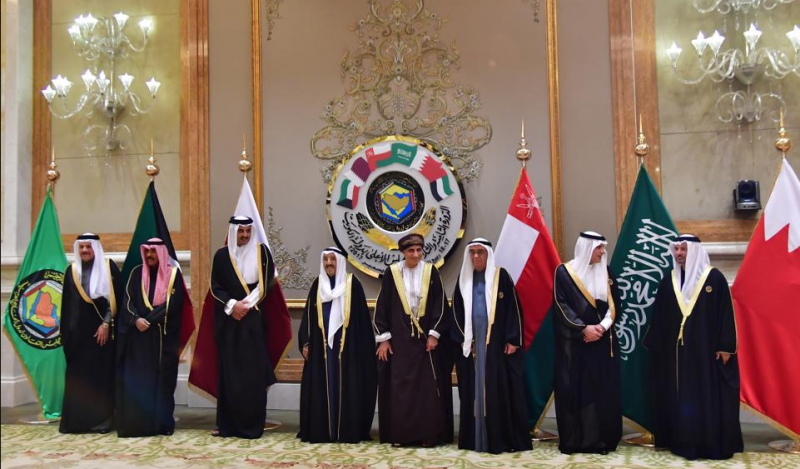
Dubai: Gulf Cooperation Council member states on Monday pledged to cooperate and make no effort to create a nuclear-weapon-free Middle East, but acknowledged that it would require the "political will" of all sides.
In keeping with the objectives of the historic United Nations Non-Proliferation Treaty from 1970, they emphasized the "legitimate right of states to the peaceful uses of nuclear energy" and called for full access to such technology, free from additional obligations.
The NPT has served as a cornerstone of international non-proliferation efforts for more than 50 years through its three pillars, which are suppression of existing nuclear arsenals, prevention of proliferation of nuclear weapons, and promotion of peaceful nuclear energy.
Also Read: Israel verifies US investigation into the death of Shireen Abu Akleh
Saudi Arabia's Permanent Representative to the United Nations Abdulaziz Alwasil spoke on behalf of the GCC nations and expressed concern about "undercover nuclear activities going on in the Middle East" and "the existence of certain nuclear facilities that are not controlled by international nuclear power." Energy Agency."
He claimed it would "undermine efforts towards building trust," "threate international and regional peace and security," and do a disservice to the goal of a "nuclear-weapons-free Middle East."
The Convention on the Establishment of the Middle East Region Free of Nuclear Weapons and Other Weapons of Mass Destruction, established in 2018 by a United Nations General Assembly resolution, was holding its third session when Alvasil delivered his speech.
An NPT review conference adopted a resolution on a Middle East WMD free zone in 1995, and this was expanded in 2010. The results of these two review conferences, according to Alvasil, remained "the main criteria for achieving the ultimate goal". Establishing a WMD Free Zone in the Middle East."
A nuclear power, Israel is not a signatory to the NPT. Iran is a signatory, but the IAEA has long expressed concerns about Iran removing agency surveillance equipment from its nuclear facilities and blocking access to critical sites thought to enrich uranium.
Also Read: Three Israelis are stabbed by a Palestinian in West Bank settlement
Just three days ago, the US, Britain, France and Germany urged the IAEA board to adopt a resolution expressing an "urgent and urgent" need for Iran to explain why traces of uranium have been discovered at three sites, which are designated were done. According to Reuters, being a part of his nuclear research.
According to the draft resolution, the board "expresses deep concern that the security issues relating to the three undisclosed locations are outstanding due to insufficient substantive cooperation by Iran."
"To ensure that there are no undeclared nuclear activities taking place in the region," Alvasil stressed the importance of ensuring that all nuclear facilities are subject to IAEA safeguards.
Alwasil later claimed that Saudi Arabia "in collaboration with the swaying Arab countries issued a General Assembly resolution calling for a meeting to be held to establish a Middle East region free of nuclear weapons and other weapons of mass destruction." and will lead to a legally binding instrument for their delivery system." Alvasil later spoke on behalf of his own nation.
He continued, "My country supports all initiatives to create such a Middle East Free Zone, and we work closely with the nations of the region to achieve this desired goal.
"Establishment of such a zone and bringing about regional peace and security requires important pillars such as building trust measures and good neighbourhood."
Alvasil reiterated the importance of securing the necessary political will to accomplish this goal, noting that continuing covert nuclear activities in the Middle East and nuclear facilities not under the IAEA's control aim to create such free zones. will fail. Instead, international peace and security will be threatened.
To ensure peaceful coexistence, achieve development and prosperity for all peoples, and reduce tensions in the Middle East, he continued: "To reduce tensions, promote trust and express goodwill among all countries in the region." Continuous efforts should be made to do this.
We must ensure that these are for peaceful purposes and that the IAEA is not monitoring Israel's ongoing nuclear facilities or any other covert nuclear activities.
As a first step towards our main goal, the creation of a Middle East Free Zone, we must ensure the peaceful nature of all nuclear activities in the region.
Alwasil said that Saudi Arabia welcomes the exchange of knowledge and expertise on the legal framework for debate on the issue. Saudi Arabia actively participated in the last two conferences on the establishment of a Middle East region free of nuclear weapons and other weapons of mass destruction.
Also Read: Turkey makes additional arrests in connection with the deadly bombing
He also urged a sharing of ideas with nations in Africa, Latin America, and Asia that have already made progresstoward creating WMD-free zones in their respective regions.